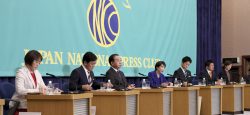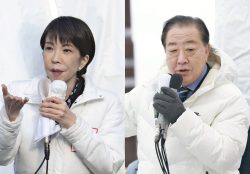At Least 6 Senior LDP Members Not to Receive Party Endorsement; Ishiba’s Decision Focused on ‘Gaining Trust of Public’
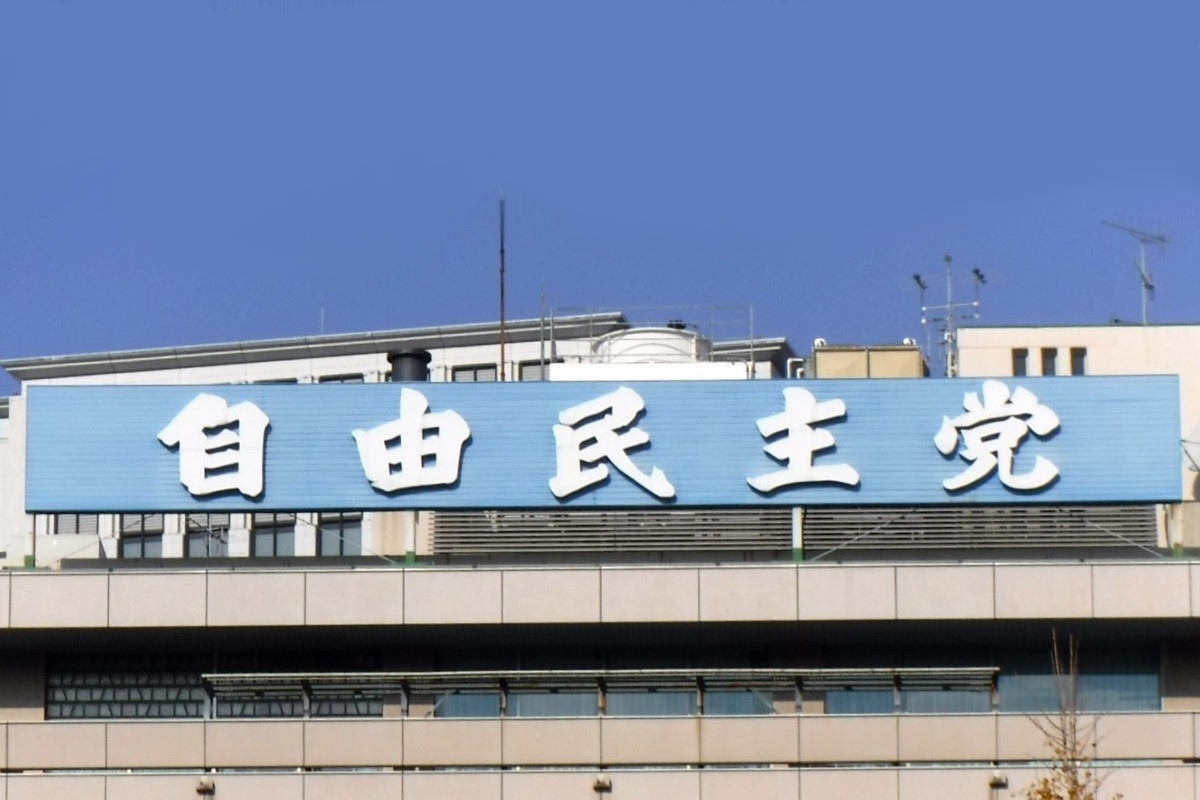
The Liberal Democratic Party’s headquarters in Chiyoda Ward, Tokyo.
17:12 JST, October 7, 2024
At least six senior members of the Liberal Democratic Party are unlikely to be endorsed as official party candidates for the upcoming House of Representatives election, following Prime Minister Shigeru Ishiba’s decision to refuse such support for lawmakers who were involved in a political funding scandal.
Ishiba announced Sunday that he would not approve endorsements for those who received harsh penalties and failed to hold themselves accountable. The lawmakers in question did not report certain income in their political fund reports, thereby violating the Political Funds Control Law.
The six include former Education, Culture, Sports, Science and Technology Minister Hakubun Shimomura; former Economy, Trade and Industry Minister Yasutoshi Nishimura; and former LDP Diet Affairs Committee Chairperson Tsuyoshi Takagi. The others are former LDP Policy Research Council Chairperson Koichi Hagiuda; former Reconstruction Minister Katsuei Hirasawa; and lower house member Hiromi Mitsubayashi.
Other scandal-tainted lawmakers will also not be endorsed by the LDP if they are not supported by their home constituencies.
Ishiba made his decision Sunday after discussions with LDP Secretary General Hiroshi Moriyama.
The party has eight types of penalties for members. Endorsements will not be given to those who received at least the LDP’s fourth-strictest punishment. Shimomura, Nishimura and Takagi fall under this category. Shimomura and Nishimura had their party membership suspended for a year, the LDP’s third-harshest punishment, while Takagi’s membership was suspended for six months.
Even those who were suspended from their position within the party, the sixth-strongest punishment, will not be endorsed if their one-year suspension is still in force and they have not appeared before the Political Ethics Hearing Committee. Hagiuda, Hirasawa and Mitsubayashi fall into this category.
The other members in question are unlikely be endorsed if their home constituency did not apply to the party for their endorsement, or if the party’s surveys indicate that they are not competitive candidates.
“The decision will result in a considerable number of unendorsed candidates,” Ishiba told reporters after his meeting with Moriyama. “But, as a person who has the authority to endorse candidates, I will make my final decisions from the perspective of gaining the trust of the people.”
As for the rest of the members in question, the party may endorse them as a candidates in a single-seat constituency but will not allow them to simultaneously run in proportional representation sections. Under this policy, up to 37 incumbent lawmakers who seek to run in the upcoming election will not have a chance to be elected through proportional representation if they lose in their single-seat constituency.
This applies to former Chief Cabinet Secretary Hirokazu Matsuno and former Internal Affairs and Communications Minister Ryota Takeda.
“Their escape route has been blocked, so they’ll have to leave their fate to the voters in their constituencies,” Ishiba said.
In line with this decision, Ishiba and other LDP leaders — Moriyama, General Council Chairperson Shunichi Suzuki, Policy Research Council Chairperson Itsunori Onodera and Election Strategy Committee Chairperson Shinjiro Koizumi — have decided not to run in both single-seat constituencies and under the proportional representation system.
Top Articles in Politics
-

Japan Seeks to Enhance Defense Capabilities in Pacific as 3 National Security Documents to Be Revised
-

Japan Tourism Agency Calls for Strengthening Measures Against Overtourism
-
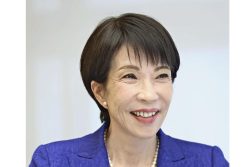
Japan’s Prime Minister: 2-Year Tax Cut on Food Possible Without Issuing Bonds
-
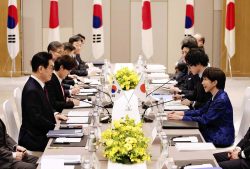
Japan-South Korea Leaders Meeting Focuses on Rare Earth Supply Chains, Cooperation Toward Regional Stability
-

Japanese Government Plans New License System Specific to VTOL Drones; Hopes to Encourage Proliferation through Relaxed Operating Requirements
JN ACCESS RANKING
-

Univ. in Japan, Tokyo-Based Startup to Develop Satellite for Disaster Prevention Measures, Bears
-

JAL, ANA Cancel Flights During 3-day Holiday Weekend due to Blizzard
-

China Confirmed to Be Operating Drilling Vessel Near Japan-China Median Line
-

China Eyes Rare Earth Foothold in Malaysia to Maintain Dominance, Counter Japan, U.S.
-

Japan Institute to Use Domestic Commercial Optical Lattice Clock to Set Japan Standard Time


